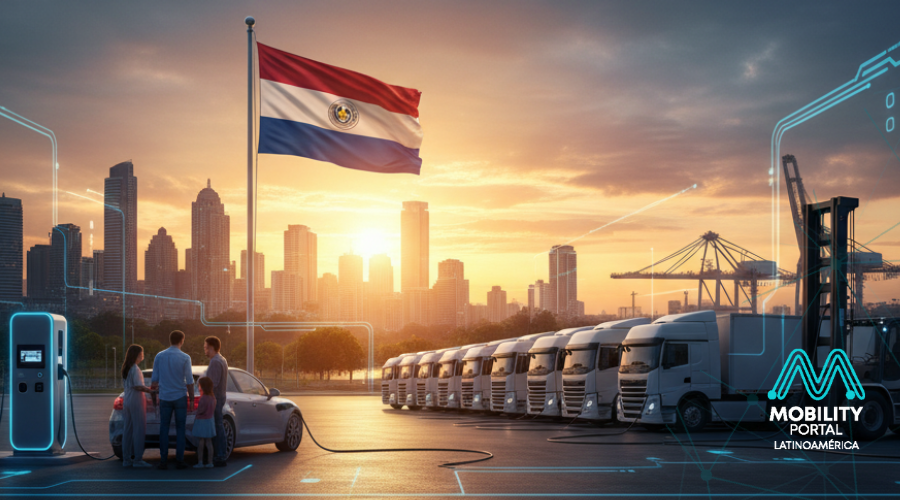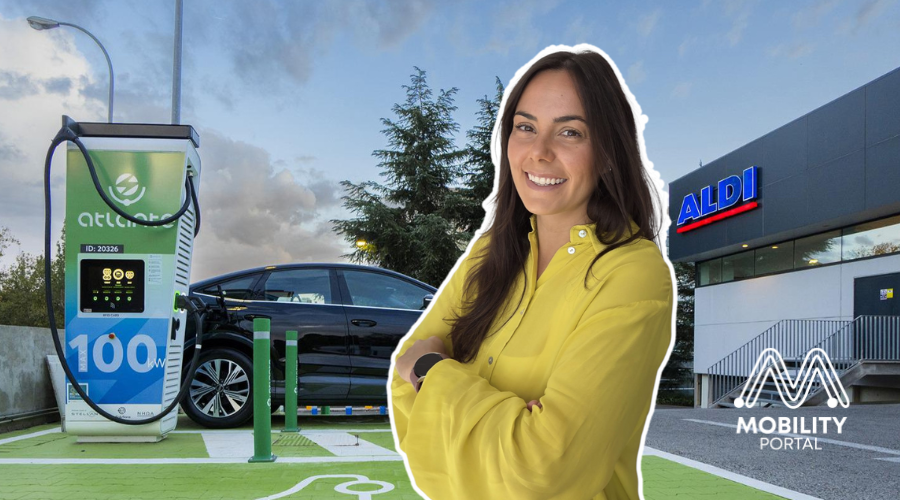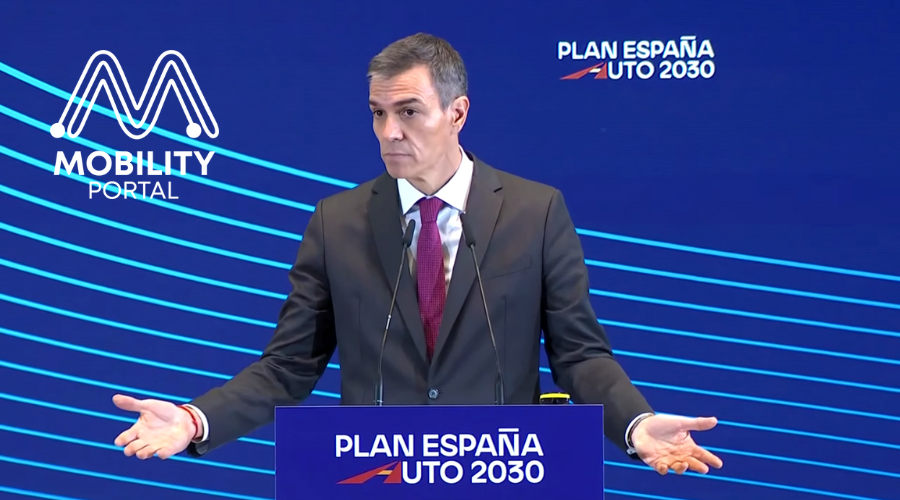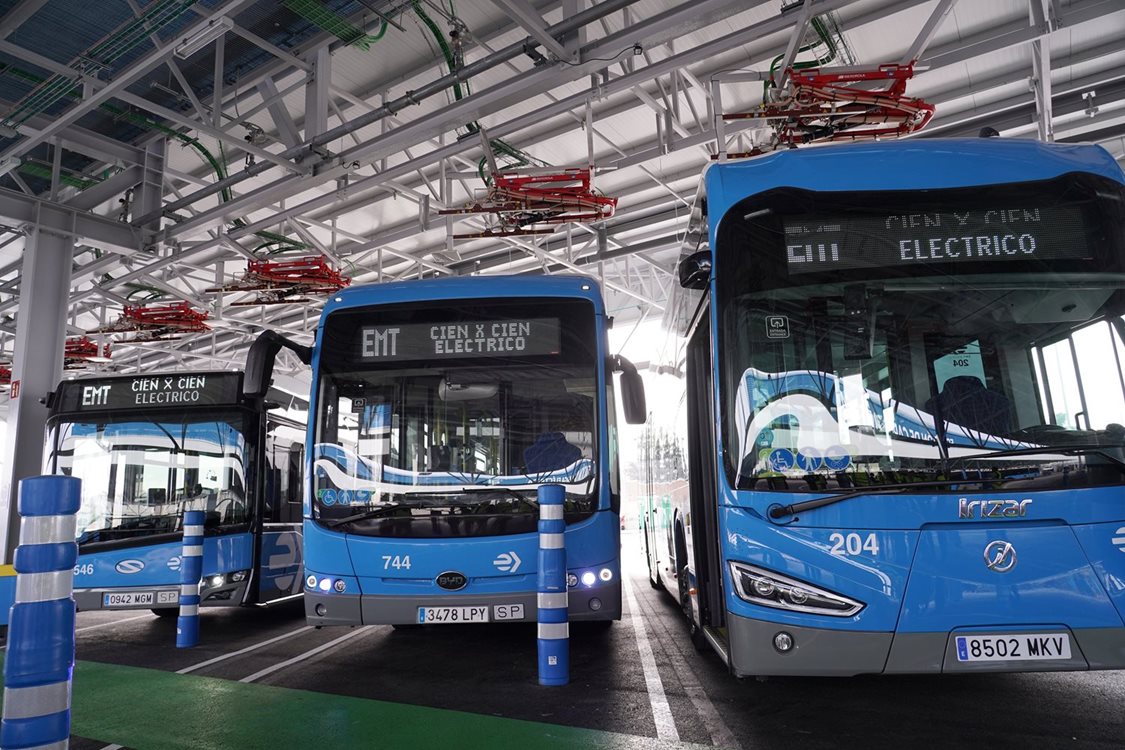The debate around electromobility in Paraguay is increasingly focusing on a key issue: the cost of energy and the regulatory framework governing its use.
In a country with abundant hydroelectric generation, the challenge is not availability, but how to structure a tariff system that drives investment in infrastructure and fleets without relying on direct subsidies.
The Vice Ministry of Mines and Energy (VMME) has confirmed that it is working alongside the National Electricity Administration (ANDE) to define tariffs and technical conditions that support the growth of the electric vehicle sector.
“We are working with ANDE to design tariffs and schemes for power access and infrastructure reinvestment. ANDE and the VMME already have joint documentation for demand planning and forecasting,” said Mauricio Bejarano, Vice Minister of Mines and Energy, to Mobility Portal.
The tariff design will include different levels depending on the type of user — residential, public, or corporate fleets — as well as time-of-use and contracted power, drawing on successful experiences from neighbouring countries such as Brazil and Uruguay, but with criteria adapted to the Paraguayan context.
Tariffs by segment and demand signals
The new scheme will seek to distinguish between slow and fast charging, and to avoid peak loads on the grid. Time-based tariffs are being considered to encourage night-time charging, along with power-based contracts for fleet operators and public charging providers.
Sources from the VMME stated that the goal is for the system to “encourage planning and efficiency,” with mechanisms that reward those who manage demand intelligently. The idea is for each charging station, whether public or private, to have cost predictability and guaranteed power access — a key factor for enabling market growth without destabilising the grid.
In this regard, ANDE and the VMME are also working on reinvestment protocols: part of the revenue from the new tariffs will be allocated to reinforcing transformers, connections, and distribution infrastructure — a measure aimed at staying ahead of the anticipated growth in the electric vehicle fleet.
The value of clean energy as a competitive advantage
From the private sector, Diego Lovera, a representative of the Chamber of Automotive and Machinery Distributors (CADAM), highlights that Paraguay benefits from a unique energy base in the region.
“Paraguay is a privileged country, as we have 100% clean and renewable electricity generation. We are one of the few countries with this capacity, thanks to our hydroelectric plants,” he explains.
This condition presents a strategic opportunity: if the country manages to define stable and competitive electricity prices, the total cost of ownership (TCO) for electric vehicles could be lower than that of fossil-fuel-powered vehicles, even without fiscal incentives. CADAM believes that a transparent and predictable tariff scheme could accelerate investment decisions in both fleets and infrastructure.
From pilot to public policy
The VMME plans for the first pilot tariffs to be applied to ongoing projects related to public transport and logistics corridors. Based on the outcomes, necessary adjustments will be made before launching a permanent national tariff framework.
The Government’s approach is clear: rather than subsidising vehicle purchases, it aims to create a regulatory and economic environment that makes electric operation financially viable.
This model — combining clean energy, technical efficiency, and public-private collaboration — seeks to position Paraguay as an energy innovation hub in the Southern Cone.
“We believe that citizens and consumers are becoming accustomed to this type of technology, and that a natural process of replacing conventional vehicles with hybrids and EVs will take place,” Lovera says, expressing optimism about the adoption curve.
With planning already under way, Paraguay is on track to implement its first electricity tariff specifically for mobility — designed to balance the interests of users, operators, and the utility. The key will be how technical studies are translated into concrete, sustainable economic signals.
DISCOVER MOBILITY PORTAL DATA
Discover Mobility Portal Data, a new exclusive market intelligence platform offering reliable data and key insights to support smart decision-making in the automotive sector — covering both combustion and electric vehicles, as well as charging infrastructure.
Research, trend analysis, clearly organised statistics, current developments — all just a click away.
With Mobility Portal Data, better decisions are coming.
READ MORE
-
Atlante y su “modelo híbrido”: generación, almacenamiento y recarga ultrarrápida para un sistema más resiliente
Atlante acelera su despliegue en España y en diálogo con Mobility portal, Inés Mackey, Chief of Staff de Atlante Iberia define las prioridades de la empresa y su apuesta por la interoperabilidad de la mano de Charge League.
-
Spain Auto 2030: a point-by-point look at the plan set to redefine the eMobility landscape
Spain has entered a new phase in its industrial strategy for electric mobility. The Government has unveiled Spain Auto 2030, a roadmap designed to mobilise €30 billion over the next five years, reshaping the centre of gravity of the electric vehicle market through fresh incentives, a centralised management model, targeted investment in charging infrastructure and…
-
EMT Madrid licita 120 nuevos buses eléctricos: inversión de 79,35 millones y entregas entre 2026-2027
Con esta incorporación, Madrid refuerza su estrategia de descarbonización y consolida una de las flotas eléctricas urbanas más grandes de Europa.









